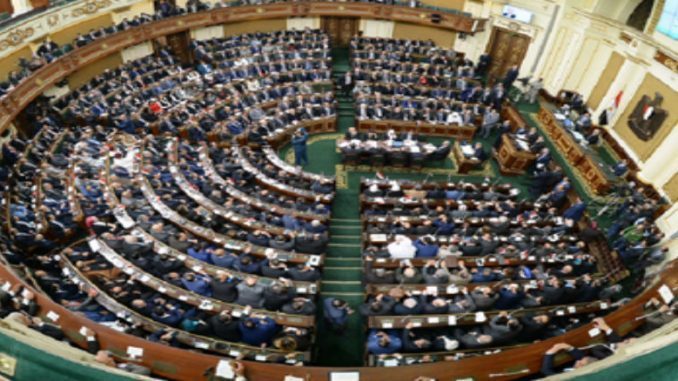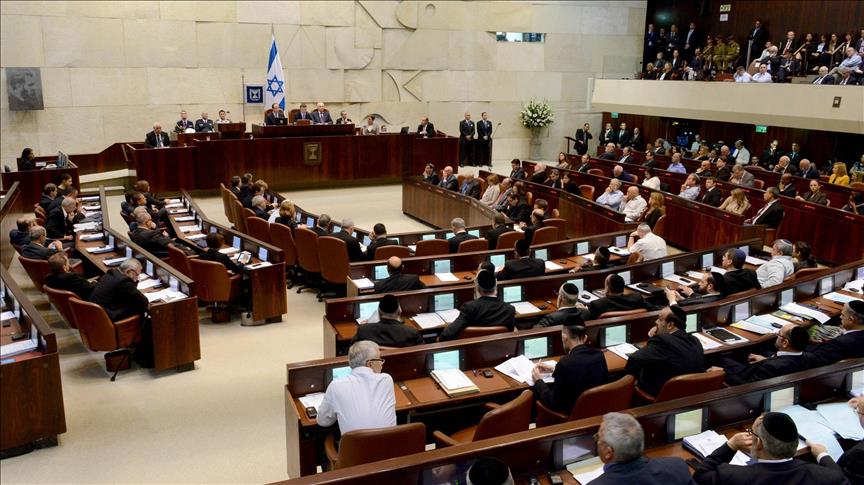
An Egyptian member of parliament has called for the “execution” of social media activists. He added that social media users are “more dangerous than spies” calling for strict punishments against those who criticize the state.
Ahmed Refaat, a member of the communication and information committee, stated on Parlmany website, an Egyptian website that focuses on news related to the Egyptian Parliament, that social media users are “more dangerous than spies”.
He said,”They should be executed for wanting to topple the state.”
He added that the Egyptian government is being too lenient on punishing activists who “incite against their country” online.
A New Cyber-Crime Law Is on Its Way
Egypt’s parliament is expected to discuss a long-awaited draft law on cyber-crime soon.
A number of drafts of the bill were submitted to parliament earlier last year, but none was passed.
One of the most suggested draft laws was presented by Tamer Al-Shehawy, a former general who turned to a parliament member, last May.
Al-Shehawy’s bill claims that its target is to support counter-terrorism efforts and eliminate the ‘forces of evil’ on the internet.
Al-Sisi has referred several times in his speeches to the “Forces of evil “or “Evil doers” which indicates how the Egyptian parliament is working in alignment with the military regime in Egypt to stabilize its rule.
In fact, the Egyptian military regime controls the media and the parliament through former intelligence and security figures who have become members of the parliament to pass laws in the regime’s favor.
Al-Shehawy is a member of the parliament’s Defense and National Security Committee and he was a former major general and officer in the military intelligence.
At that time,the Suggestions and Complaints Committee in the House of Representatives bill has approved the suggested bill that consists of 30 clauses, most of which are punitive not regulatory.
The draft bill at that time imposed penalties that range from heavy fines to prison sentences to the death penalty which has raised concern among civil society members and human rights activists fearing that parliament will vote to pass it.
The main aim of legalizing the cyber-crime bill is to explicitly criminalize acts on the internet in a separate law from the penal code as stated by the Al-Shehawy. He also said that the crimes included in his bill have no reference in Egypt’s penal code. “New crimes need new laws to counter them,”he argued.
He justified his stance by saying that the threats Egypt is currently facing have changed, thus requiring new strategies and laws in dealing with them.
Al-Shehawy also claimed that this bill would criminalize wrongful acts and impose penalties, but does not seek to be regulatory of internet behavior, which should be done by the Communications Committee.
Al-Shehawy said, “There are indeed some terminologies that need to be explained in the law in order not to be wrongfully used, and the bill shall be amended because it is not holy and may include imprecise terms.”
In response, human rights activists have expressed their dissent and fear from the new cyber-crime bill, presented by Tamer al-Shahawy, if passed by the parliament.
The vice-president of the National Council for Human Rights (NCHR) Abdel Ghaffar Shokr said that the government is trying its best to control society and to close the public domain, the last outlet of which is of course the internet.
Shokr said, “The authorities are not going to stop unless they fully suppress everyone and everything. There will be no exit left for anyone to express their opinions if this bill is approved.”
Mohammed Al-Taher, a researcher at the Association for Free Thought and Expression (AFTE) said,”There is no need for a cyber-crime law in the first place, as it is like any other crime but the difference is that it is committed on/using the internet,”adding that internet activists may be arrested with or without this law so it does not even act as a proper legal framework.
Al-Taher added that the real problem is the hostile nature of the state against the internet.
This was especially apparent in recent speeches given by Al-Sisi, which he views the internet as an invention that the ‘forces of evil’ try to wield in their favor. Al-Sisi has once stated in his speech in April 2016, “I can easily occupy the internet with two troops and make it a closed circuit for media figures to take their news from it.”
Authorities have realized that there is no way to completely control the internet; however, instilling fear in the populace, which is the main aim of the law, works in the government’s favor, said Al-Taher.
Moreover, the Egyptian regime controls media as the government either quashed all voices of dissent or self-censorship is a common practice in order to not be targeted by the state security forces. If the internet becomes the next medium for control, the target would not only be journalists and opposition, it could be any citizen.
Harsh Measures and Regulations
Since the military coup against Egypt’s first democratically elected President Mohamed Morsi, the Egyptian authorities adopted harsh measures and regulations to legalize the crackdown of political opposition.
In this context, the Internet crime is regulated by Egypt’s anti-terrorism law which was issued in late 2013, as well as former legislation such as the penal code and the communications law.
Article 19 of the International Covenant on Civil and Political Rights, which Egypt has signed, states: “(1) Everyone shall have the right to hold opinions without interference. (2) Everyone shall have the right to freedom of expression; this right shall include freedom to seek, receive and impart information and ideas of all kinds, regardless of frontiers, either orally, in writing or in print, in the form of art, or through any other media of his choice.”
However, the covenant says that these rights “may be subject to certain restrictions” where necessary “for respect of the rights or reputations of others” and “for the protection of national security or of public order… or of public health or morals.”
There are a number of relevant provisions in Egyptian law that have been used in conjunction with offences committed online, including expressing views on social media or administering pages on social networks.
For instance, Article 40 of the criminal penal code equates incitement to a crime with committing the crime itself. Moreover, Article 174 imposes a five-year jail term on whoever incites a coup against the ruling regime, or hate against it, or promotes ideas to change the constitutional principles, or to change essential systems by force, and whoever threatens government security.
Articles 176 and 177 put penalties in place for inciting hate against certain groups if this incitement affects public order, or invites the violation of laws.
However, the term “incitement” is not precisely defined in Egyptian law.
In addition, the anti-terrorism law has established harsher penalties as it gives a broad definition to “terrorist” actions, and equates the incitement of a crime with the crime itself, even if no action has resulted from the incitement.
For example, Article 29 of that law stipulates a five-year prison sentence for anyone creating a website that incites ideas that would obstruct authorities, promotes ideas calling for terrorist actions, impedes justice, or provides a platform for exchanging information about terrorists and their movements.
The Egyptian authorities have carried out a wide-ranging campaign directed at a variety of political opponents that include mainly members and supporters of the Muslim Brotherhood as well as leftists, activists, human rights defenders, journalists, artists and even young people posting and sharing political statements on social networks.
Since Abdel Fattah al-Sisi came to power in a military coup, between 40,000 and 60,000 political prisoners have been jailed in Egypt.
Moreover, the Egyptian authorities have also constructed 13 new prisons to facilitate the mass detentions.
Hopes for freedom and democracy brought by January Revolution in 2011 have faded away after the military coup.
As any autocratic regime, al-Sisi ‘s government worked to eliminate all forms of democracy and freedom of speech in the country.
Egypt’s new policies and tactics now are similar in autocratic regimes which aim to secure their leadership from any possible opposition that would widen the scale of dissent in their countries and thus, challenge their power.
They usually seek to turn their societies into secretive and closed public domains.
Al-Sisi is putting himself in the same shoes of other autocratic regimes as North Korean President Kim Jong-Un who has successfully limited his country’s access to the global internet.
Other than the limited access granted to the government, there is virtually no network available to locals.
As a result, the society in North Korea has turned to an isolated, secretive society after the crackdown of the North Korean authority on the internet.
It seems that all autocratic regimes are similar; they seek to close all the forms of expression that might challenge or impose any threat on their power.
Al-Sisi fears the same fate of Egypt’s ousted dictator Hosni Mubarak who ruled Egypt for 30 years,but the internet has played a major role in toppling his regime on 25 January Revolution.



